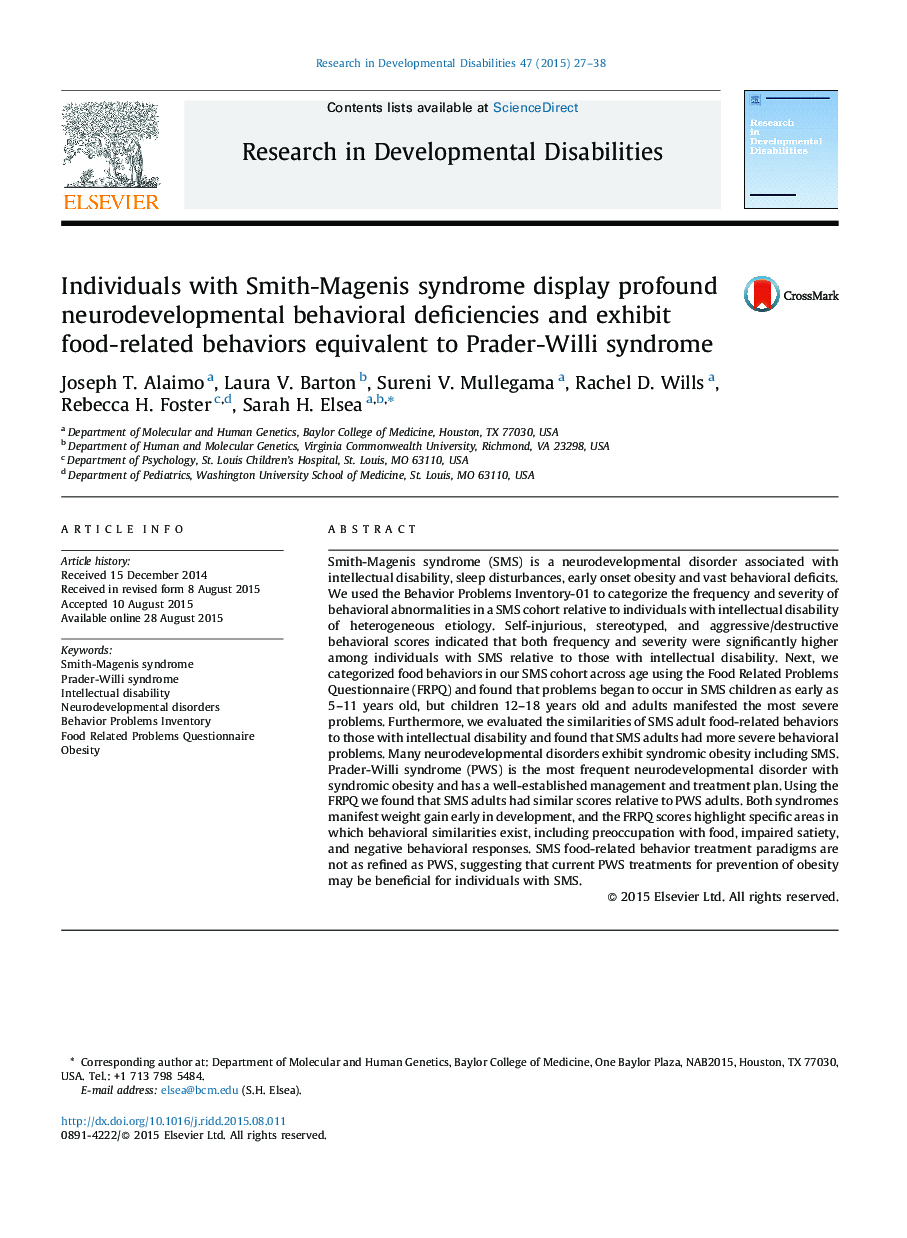| کد مقاله | کد نشریه | سال انتشار | مقاله انگلیسی | نسخه تمام متن |
|---|---|---|---|---|
| 371118 | 621898 | 2015 | 12 صفحه PDF | دانلود رایگان |
• Smith-Magenis syndrome (SMS) was assessed using the Behavior Problems Inventory.
• SMS displays severe behavioral deficits when compared to intellectual disability.
• SMS was assessed for food behaviors using the Food Related Problems Questionnaire.
• SMS food-related problems manifest as early as their primary years.
• SMS adults display severe food problems when compared to intellectual disability.
• SMS adults have food-related problems comparable to Prader-Willi syndrome.
Smith-Magenis syndrome (SMS) is a neurodevelopmental disorder associated with intellectual disability, sleep disturbances, early onset obesity and vast behavioral deficits. We used the Behavior Problems Inventory-01 to categorize the frequency and severity of behavioral abnormalities in a SMS cohort relative to individuals with intellectual disability of heterogeneous etiology. Self-injurious, stereotyped, and aggressive/destructive behavioral scores indicated that both frequency and severity were significantly higher among individuals with SMS relative to those with intellectual disability. Next, we categorized food behaviors in our SMS cohort across age using the Food Related Problems Questionnaire (FRPQ) and found that problems began to occur in SMS children as early as 5–11 years old, but children 12–18 years old and adults manifested the most severe problems. Furthermore, we evaluated the similarities of SMS adult food-related behaviors to those with intellectual disability and found that SMS adults had more severe behavioral problems. Many neurodevelopmental disorders exhibit syndromic obesity including SMS. Prader-Willi syndrome (PWS) is the most frequent neurodevelopmental disorder with syndromic obesity and has a well-established management and treatment plan. Using the FRPQ we found that SMS adults had similar scores relative to PWS adults. Both syndromes manifest weight gain early in development, and the FRPQ scores highlight specific areas in which behavioral similarities exist, including preoccupation with food, impaired satiety, and negative behavioral responses. SMS food-related behavior treatment paradigms are not as refined as PWS, suggesting that current PWS treatments for prevention of obesity may be beneficial for individuals with SMS.
Journal: Research in Developmental Disabilities - Volume 47, December 2015, Pages 27–38
